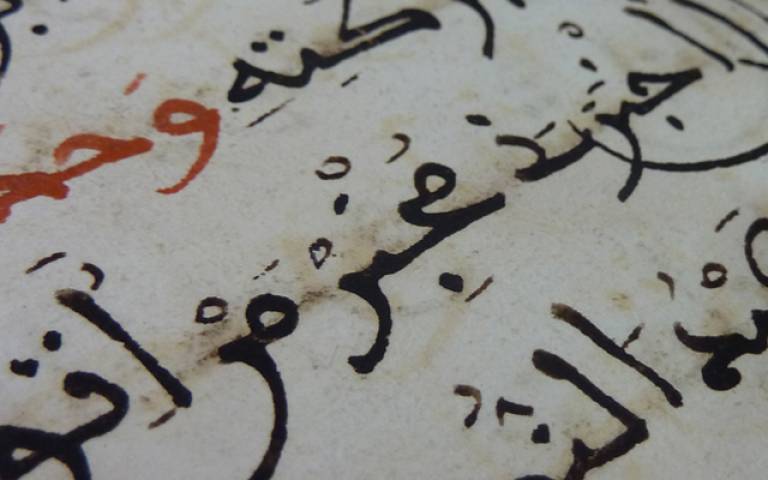Student Hend Mahgoub published research on material properties of Islamic paper
10 November 2016

In contrast to scientific research focussing on European paper, there is a significant gap in our knowledge of Islamic papermaking. Hend, 3rd-year SEAHA student at UCL Institute for Sustainable Heritage, recently reviewed the evidence of specific papermaking practices associated with paper used in the Islamic cultural realm.
For the first time, material properties of Islamic paper have been systematically examined in considerable detail. Hend developed in-depth knowledge of techniques such as starch-sizing and paper polishing, which are typical of Islamic papermaking. She developed a non-destructive characterization methodology that can be used to survey large Islamic paper collections and establish material properties of well-dated and provenanced collections, and thus add a layer of scientific data to the existing codicological, historical and palaeographical research.
This is also the first peer-reviewed paper published in the renowned journal Heritage Science as part of the new SEAHA Thematic Series, edited by Josep Grau-Bove.
Hend’s paper can be downloaded open access.
In the frame of her doctoral research, co-funded by the EU Horizon 2020 project Nanorestart, Hend works with partners from academia, heritage and industry: the Rijksmuseum (Amsterdam), University of Barcelona, UCL Department of Statistical Science, Gilden Photonics Ltd (Glasgow) and ZFB GmbH (Leipzig). Her broader research project looks at quantitative chemical hyperspectral NIR imaging of historic cellulosic materials, Islamic paper and painting canvases in particular.
Springer Open also featured Hend’s paper in a blog post.
Links
- Read Hend Mahgoub Material Properties of Islamic Paper in Heritage Science
- Read Hend’s blog post on the publication
- Heritage Science
- EU Horizon 2020 project Nanorestart
- Find other publications by SEAHA students
Image: an Islamic manuscript from the historic reference material collection at UCL Institute for Sustainable Heritage.
 Close
Close

